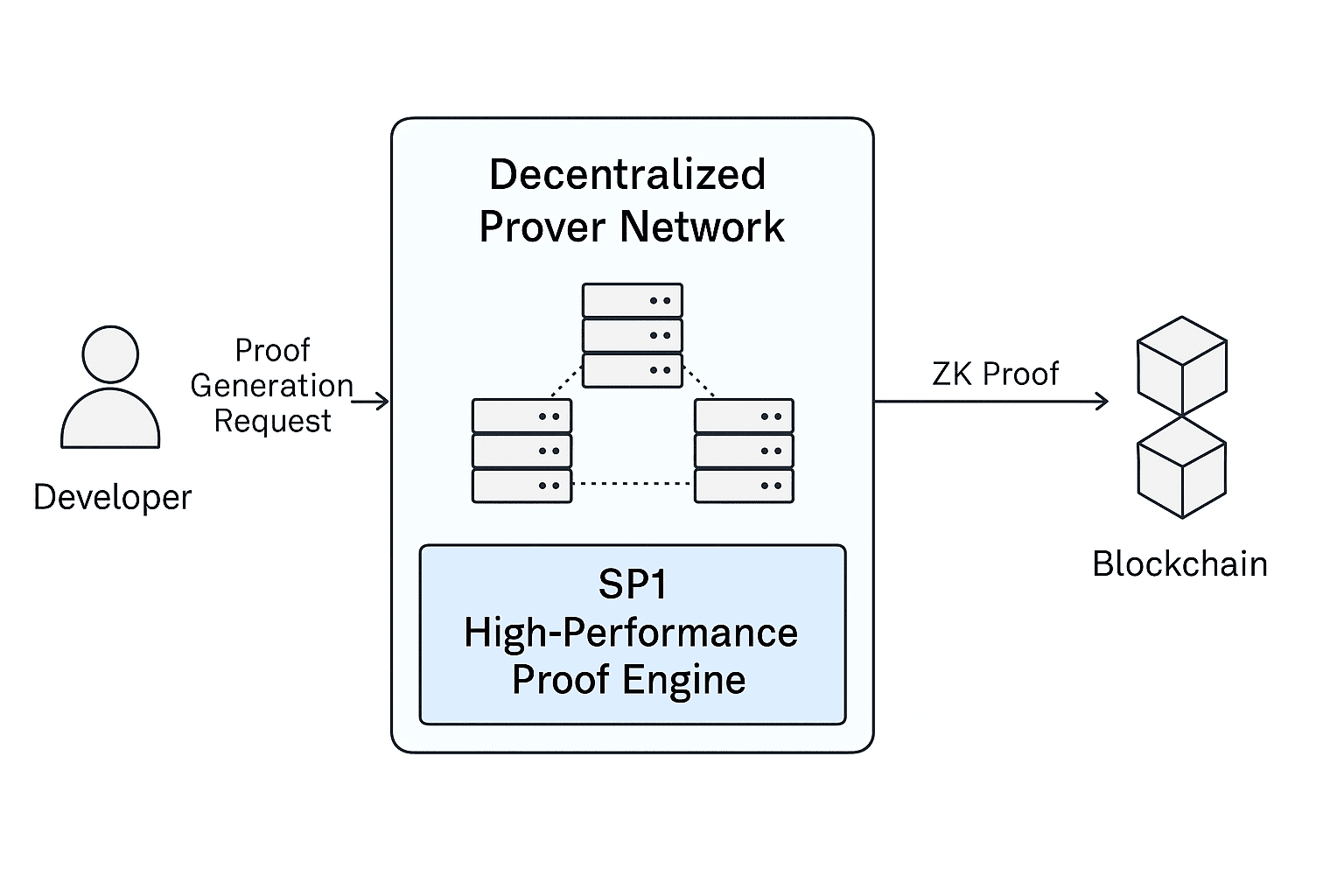@Succinct #succinctLabs $PROVE
1. Project Overview
Succinct Labs is a Web3 technology team focused on Zero-Knowledge Proof (ZKP) infrastructure, dedicated to building a decentralized, high-performance, and user-friendly zero-knowledge proof network.
Its core products include:
Succinct Prover Network (Decentralized Proof Generation Network)
SP1 (High-Performance Zero-Knowledge Proof Engine)
The goal of this project is to lower the integration threshold for ZKP technology in blockchain applications, enabling developers to easily deploy and utilize efficient ZK computing capabilities without having to build complex hardware or computational clusters.
2. Core Technologies and Architecture
2.1 Succinct Prover Network
Decentralized Structure: Composed of globally distributed proof nodes, with computational tasks allocated by the network and verified through consensus.
Computational Task Distribution: Developers can submit computational tasks requiring ZK proof generation to the network, and the proofs are collaboratively completed by nodes.
Security and Incentive Mechanisms: Incentivize nodes to participate in computations through native tokens or reward mechanisms and verify results on-chain.

2.2 SP1
High Performance: Optimized proof generation algorithms that significantly shorten proof time under the same computational load.
Strong Compatibility: Supports multiple virtual machines (such as RISC-V) and various ZK protocols (such as zkSNARK, zkSTARK), facilitating integration for different types of Web3 applications.
Simple Deployment: No need to build complex proof clusters; connect directly via API or SDK.
3. Technical Highlights
Outstanding ZK Performance:
Compared to traditional provers, SP1 performs better in proof generation speed, memory usage, and scalability.
Developer-Friendly:
Provides cloud API, SDK, and documentation to lower the development threshold for ZKP applications.
Decentralized Security:
Multi-node collaboration to generate proofs reduces single points of failure and centralization risks.
No Complex Infrastructure Required:
Developers do not need to build GPU clusters or specialized hardware; they can directly call the network.
4. Application Scenarios
Cross-chain Verification: Verify the authenticity of states or transactions across different chains, reducing security risks of cross-chain bridges.
DeFi Protocols: On-chain verification of complex calculations (such as risk models, interest rate calculations) without exposing sensitive data.
On-chain AI Inference: Generate ZK proofs from AI inference results, allowing verification of inference correctness on-chain.
Privacy Transactions and Identity Verification: Prove identity or transaction conditions without revealing original information.
5. Project Advantages and Competitiveness

6. Risks and Challenges
Network Effect Dependency: The performance of the decentralized network depends on the number and quality of nodes, which may initially lack computational power.
Token Economic Model: If incentives are insufficient, node participation enthusiasm will decrease.
Competitive Pressure: Similar projects like Mina, Polygon zkEVM, StarkNet, etc., are also laying out high-performance ZKP infrastructure.
7. Development Prospects
As the demand for ZK technology rapidly grows in areas like cross-chain, privacy, and AI verification, Succinct Labs' low-threshold, high-performance ZKP network is expected to become an important component of Web3 infrastructure. If it can continue to maintain advantages in performance, cost, usability, and ecosystem collaboration, its potential is enormous.
Conclusion
Succinct Labs provides a solution that combines performance and usability in the field of zero-knowledge proofs through the decentralized Succinct Prover Network and SP1 engine, particularly suited for Web3 development teams looking to quickly integrate ZKP. Future growth will depend on ecosystem expansion, improvement of node incentive mechanisms, and deep cooperation with mainstream blockchain platforms.



